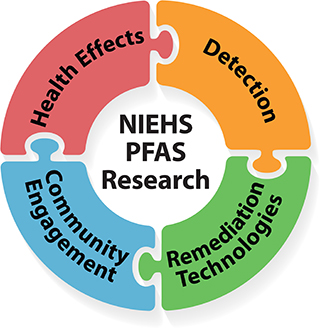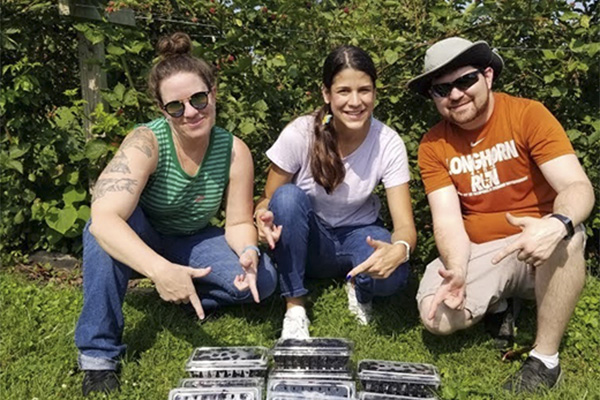
NIEHS is committed to studying the health effects of PFAS, advancing innovative tools that help to remove these substances from the environment, and effectively sharing research findings with communities and public health officials.
To advance critical knowledge that can inform decision-making at the individual and public health levels, NIEHS funds research into PFAS at universities, nonprofit research centers, and small businesses across the country. A major supporter of PFAS research and innovative technologies to reduce exposures is the NIEHS Superfund Research Program (SRP). Some of the institute's inhouse scientists conduct PFAS research, too.
Be sure to check out the resources highlighted below, which provide the latest peer-reviewed scientific papers, reports, and other information related to PFAS.
Key Facts, New Publications, and More

Introduction to PFAS
Because PFAS are widespread, growing in numbers, and persistent in che body and environment, they have drawn significant attention from the public and scientific community.

Institute Grant Recipients focused on PFAS
Learn how NIEHS grant recipients across the country are working to shed light on the potential health effects of PFAS.

National Toxicology Program Research on PFAS
NTP is studying the potential health effects of PFAS through a large research effort with multiple facets including experimental rodent and cell-based test systems, literature review, and computer modeling, among others.

Additional Resources
Check out these resources from NIEHS partners to learn about important national efforts regarding PFAS and to explore other key topics related co these chemicals.
Hot Topics

Folate's protective effects may now extend to PFAS
New studies show folate may reduce PFAS accumulation in the body, which may protect against adverse birth outcomes and boost immune health.

High-fiber diet may protect against exposure to PFOS
The diet may decrease disease risks associated with exposure to perfluorooctane sulfonate, which is a type of PFAS, say NIEHS grantees.


